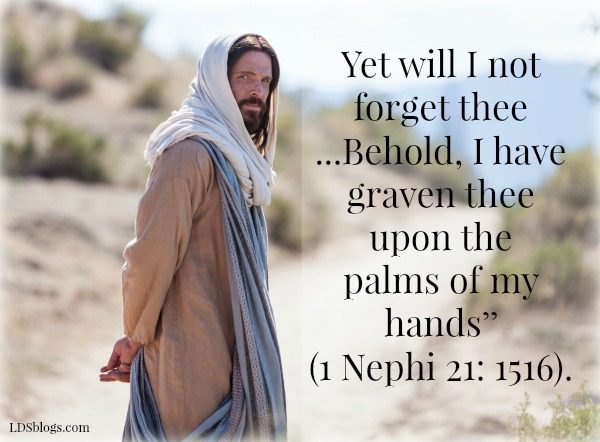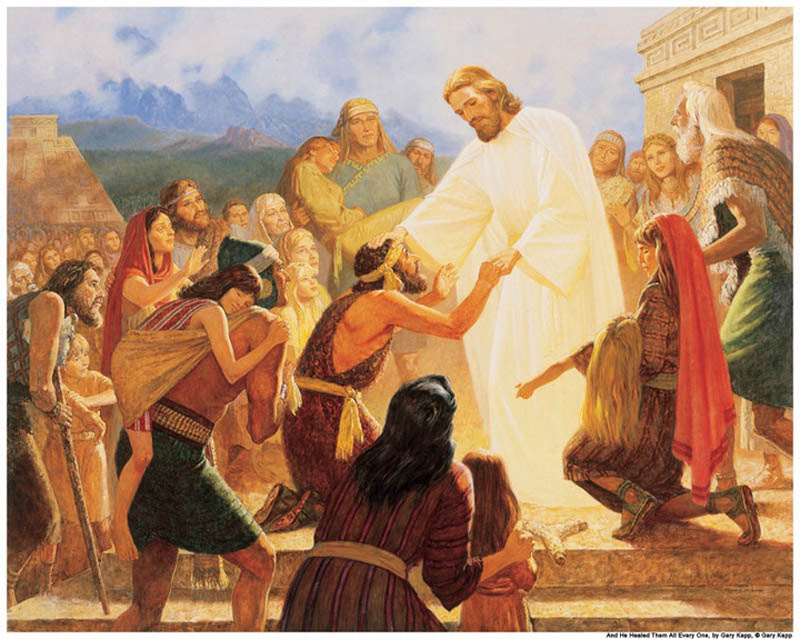I love Sherlock Holmes. In The Boscombe Valley Mystery, Holmes utters one of my favorite lines when he comes up against a case that seems too hard to crack:
“…There, but for the grace of God, goes Sherlock Holmes” (Doyle, 1891).
How appropriate for one of history’s greatest detectives to touch upon grace. For me, it is one of the hardest cases to crack.
What does it mean?
How can I access it?
And how can I use it in my life?
Sometimes we may find we are faced with a person or situation that we might not want to engage with. We may decide that too much effort would be required of us. Or perhaps we have already given enough.
I have felt this way before.
It is at this point that I start wondering about the mystery of grace.
Lds.org provides a clue about grace:
“ …the enabling power and spiritual healing offered through the mercy and love of Jesus Christ …It strengthens us to do good works we could not do on our own.”
Nephi gives us another clue:
“…yet will I not forget thee…Behold, I have graven thee upon the palms of my hands” (1 Nephi 21: 1516).
This scripture gives me chills. Christ suffered for our sins. He suffered for our pains. He suffered for our inadequacies. And he cannot forget us.
We may feel weak and exhausted but He has not forgotten us because he cannot forget.
This is not a concept that is foreign to me. As a mother, I bare the scars of carrying three babies, (my stomach will never be the same again). As a wife, my husband’s socks are a constant reminder of his presence.
But the greatest conundrum is how I can access this grace that Christ freely offers. Because,
“What profiteh a man if you give him a gift and he receiveth not the gift?” (D&C 88:33).
I like a good puzzle. If there is a problem, yoI’ll solve it. And accessing grace is a puzzle that can be solved.
Ah, the game is afoot!
Elder Gene R. Cook, of the Seventy, has cleverly deduced a scientific method for resolving the case for grace.
1. Faith: keep our eyes on Christ. Do not doubt or fear his hand in our lives.
2. Humility: through humility, we recognize our weaknesses and our reliance on the Lord. It is what turns our hearts to the Lord.
3. Repentance: we must strive to perfect ourselves or grace cannot take effect. Repentance is an action that assists us in becoming like our Heavenly Father.
4. Effort: this applies to individuals and to individual circumstances. We must not compare ourselves to others, or even to ourselves. Take each day as it is.
5. Keeping the commandments: the commandments are not meant to control us, but to keep us from sin. We cannot enter into the kingdom of God if we are spotted, and the commandments tell us how to avoid sin.
Now that we have the method to access grace, how do we apply it?
In a BYU devotional on July 12, 2011, Brad Wilcox provides a solution. Grace, he says, isn’t something that kicks in at the end of our effort, it is our energy throughout the trial.
Christ already paid our debt, it is now up to us to decide how comfortable we want to be in His presence.
Essentially, we must allow for a paradigm shift in our heart and in our mind. And that is the key to the mystery. Like Holmes, if we can view the need for faith, humility, repentance, effort, and keeping the commandments from another angle, grace is no longer a case to be solved.
“Let us therefore come boldly unto the throne of grace…” (Heb 4:16).
Elder Cook’s scientific method isn’t followed out of need, but from a position of bold understanding.
When we view our case with this magnifying glasswith gratitude in our hearts—we too can be like Sherlock Holmes, solving the mysteries of life by the grace of God.
About Jessica Clark
Jessica Clark is a wife, mom, writer, runner, knitter, and proud Canadian. She graduated from Brigham Young University with a degree in Anthropology, and has been a student of people and cultures ever since. Right now she is busy studying the behavior and cultures of the people of Texas.
Twitter •







